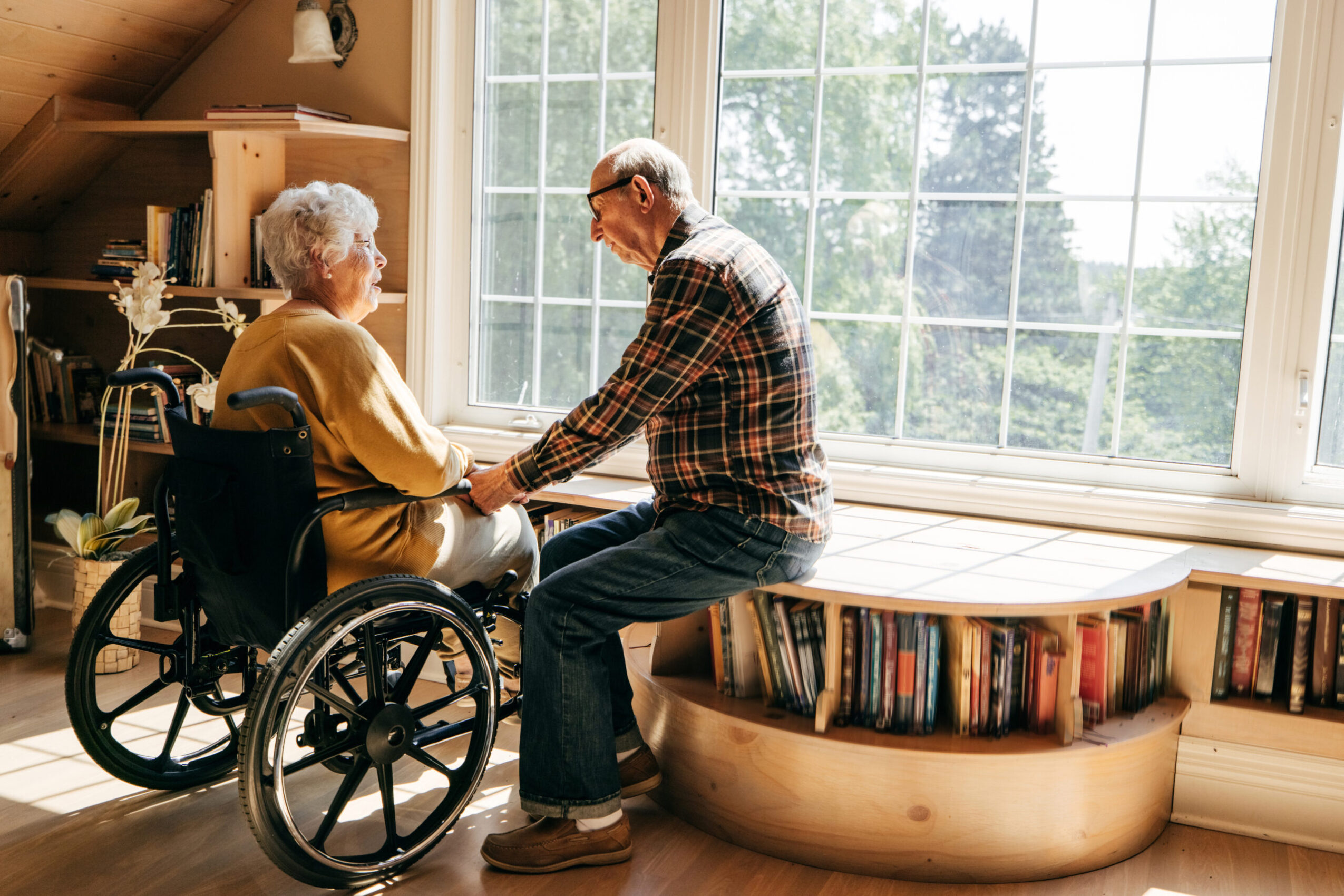Beyond daily tasks: The real impact of domestic assistance

When searching for Home Care support for a loved one, particularly in the area of Domestic Assistance, people often think of cleaning services and household chores.
While important, unless you work in this sector or receive these services, you may not realise that Domestic Assistance is about much more than simply having someone vacuum your carpet. It’s about meaningful, personal connections.
Take Home Care employee Michael, for example. When he steps into Bill’s home on a Wednesday morning, his tasks include vacuuming, making the bed, and giving the home a general clean.
However, before he picks up a dusting cloth, Bill comments on the poor form of the Roosters lately. Michael, all too familiar with Bill’s jabs about his favourite footy team, chuckles and reminds him that his Roosters sun visor still proudly shields his beloved car outside.
As Michael goes about his work, their conversation continues, picking up where they left off the previous week and discussing their plans for a visit to the pool on Friday. Michael knows Bill’s routine, respects his choices, and shares a connection with him that extends well beyond the tasks listed on a monthly invoice.
Michael’s story is not unique. Across Australia, thousands of home care workers build close relationships with the seniors they assist, often becoming part of the family. Human beings have a natural propensity to care, and home care employees instinctively ensure that the people they visit are happy and in good health, both mentally and physically.
Many, like Michael, even visit their clients in hospital outside of working hours when their health deteriorates. This level of care goes far beyond the standard definition of Domestic Assistance.
The term Domestic Assistance, while accurately describing the services provided, fails to capture the deeper person-centred benefits it brings: combating loneliness, fostering human connection, and ensuring the well-being of older Australians, many of whom live alone with limited social support. For many families, Domestic Assistance also serves as a gentle, more acceptable first step in receiving help as their loved ones age and begin to struggle with daily tasks.
Concerning change in the new Act
With that in mind, there is growing concern about the upcoming changes to aged care reform in July 2025, as the Support at Home program takes a new direction.
While many aspects of the reform are welcomed, such as expanded care classifications, lower financial contributions for some recipients, increased care budgets, and enhanced support for end-of-life care at home, one change regarding Domestic Assistance is deeply concerning.
Under the new policy, pensioners, part-pensioners, and self-funded retirees will face significantly higher out-of-pocket costs for Domestic Assistance services.
From July 1, 2025, seniors accessing these services for the first time will be required to contribute between 17.5 per cent and 80 per cent of the total costs. For example, a $100 service could now cost an individual anywhere from $17.50 to $80 out-of-pocket.
Given that nearly 40 per cent of Australians using Home Care services rely on Domestic Assistance, the repercussions of this policy shift will be substantial.
With approximately 1.25 million older Australians living alone, we must rethink this approach and acknowledge the broader benefits Domestic Assistance provides, not just to individuals but to our communities as a whole.
Within the Home Care environment, Domestic Assistance isn't just having someone clean your home or mow your lawn. Domestic Assistance brings skilled carers into the home, who are able to identify client deterioration or extra supports required, due to their training and experience.
Returning to our earlier example, if Bill was not longer able to afford weekly assistance from Michael, he would not be able to remain at home. The loss of social interaction and support would likely impact his mental health and well-being, potentially accelerating his transition into full-time residential care or the hospital system.
Michael would also not be there to observe any changes in Bill’s health and thus the opportunity for early intervention is lost. This unintended consequence contradicts the very purpose of this aged care reform, which aims to support older Australians in maintaining their independence for as long as possible.
With the majority of Home Care users relying on Domestic Assistance to remain socially engaged and independent, at a time when social isolation is a pressing issue in our communities, now is not the time to place financial barriers on this critical service. Policymakers must reconsider this aspect of the reform to ensure that older Australians can continue to access the care and connection they need to thrive.

Chris Mamarelis is the Chief Executive Officer of Australian not-for-profit aged care provider Whiddon and currently sits on the NSW Member Advisory Committee for the peak aged care industry board, Ageing Australia (formerly Aged and Community Care Providers Association, ACCPA).
Email: [email protected]





